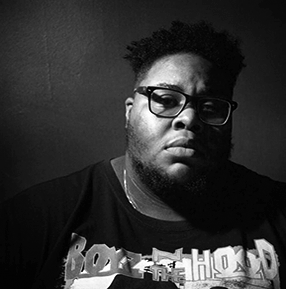You Can Light a Fire Without a Match, You Can Catch a Fish Without a Hook, You Can Make a Blind Man See
—after “The Color Purple”
Somebody call the law—
For the way Shug leans in for the kiss
after listening to Miss Celie’s long suffering.
For what begins as Shug’s prompting Miss Celie
to Shake yo’ shimmy girl! Show me yo stuff!
Miss Celie’s smile hidden behind two balled
and stoney fists that Shug holds down against a sea
of red sequin, then the spread of Miss Celie’s teeth
like the good earth opening into a field of Cosmos wild
and wide before the eye as laughter cascades from her mouth
like a fit of trumpet and trombones sounding on any
God-given night outta Harpo’s.
It was as lawless then as it is now,
two Black women finding the lover
in one another, having endured the force
ful nature of men and separation from all
they loved, including their own children.
Black women finding exception in one another.
It was the grace in Shug’s caress that held my
prepubescent breath, followed by Miss Celie turning
her cheek for another peck. Their language of touch that
left my body ringing then, what leaves me wrung out still.
No longer a child, but grown and experienced
in my own lone episodes of longing—
I knows what it like
when your body want to sing
but can’t—
to have a little help along the way
to have someone like honey
to be two bodies buzzing like bees.
Copyright © 2025 by Jari Bradley. Originally published in Poem-a-Day on June 19, 2025, by the Academy of American Poets.
“I often find that there are so many elements that build and shape who we become as individual people. What comes to stand in and mold our understandings of gender, its expression, and our own attachments to culture, whether written, visual, or otherwise. Black popular culture (written, visual, and audio) has shaped so many of my own personal touches—how I relate to masculinity and femininity, particularly in the ways in which Black folks’ performance of gender is unique and has historically been considered deviant. This poem takes that deviance into consideration, alongside my child self’s wonder and fascination with this particular scene that I’ve always come back to in The Color Purple. It was this moment in the film that has struck me for years in such a powerful and self-defining way—as in, I don’t remember who I was before this moment in the film; I can only recall who I became with each encounter of this scene over the years.”
—Jari Bradley

